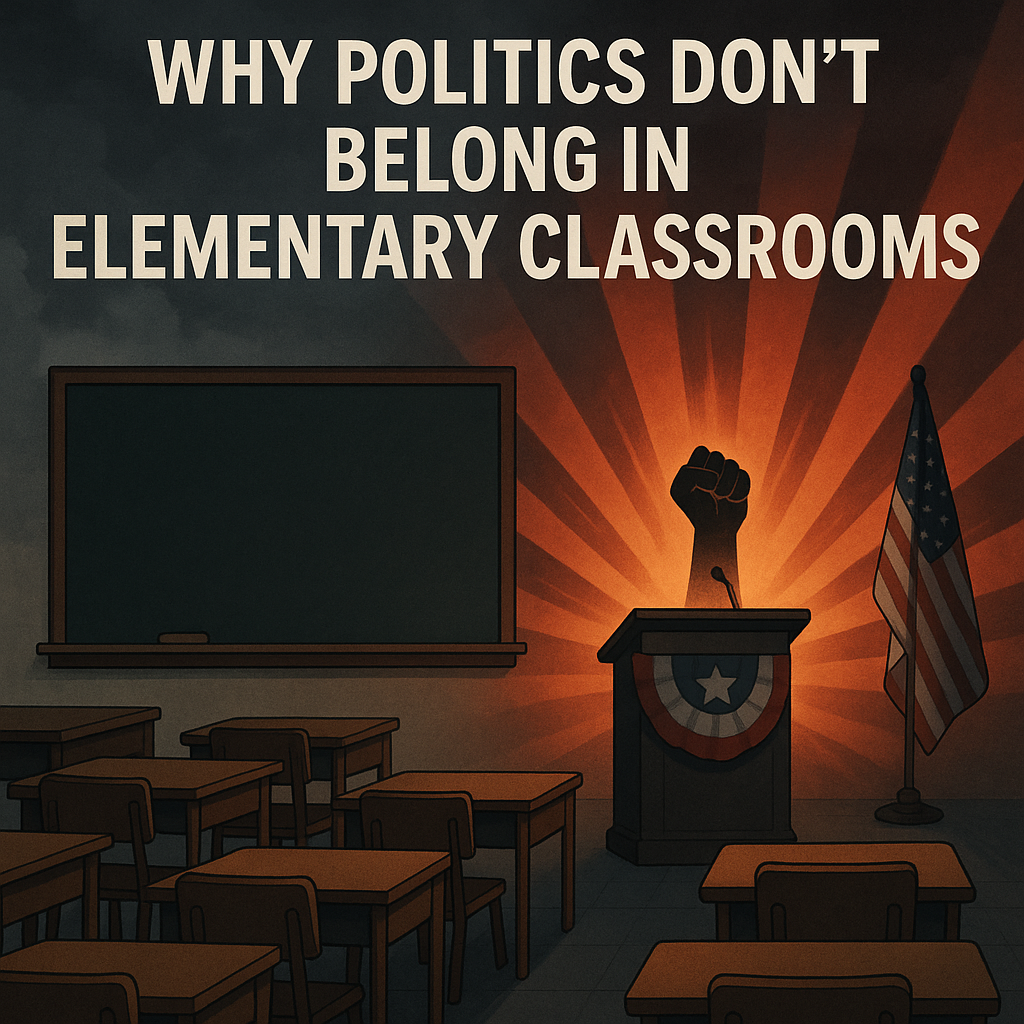
Across the country, parents are waking up to a troubling trend in elementary schools: politics are showing up in lesson plans, classroom libraries, and even in kindergarten activities. This shift isn’t about teaching civics or history. It’s about introducing political ideologies to children who are still learning to read and write. And many conservative parents are rightfully concerned.
The Rise of Ideological Curriculum
In recent years, schools have begun to include topics like gender identity, systemic racism, and social justice in their elementary curriculum. These are complex, highly charged subjects. Yet they are being presented to children as young as six as settled truth. The concern isn’t just about content. It’s about the authority the school is taking to shape a child’s moral and political worldview.
Teachers are being encouraged to bring their “authentic selves” into the classroom. That might sound harmless, but in practice it can mean teachers sharing personal beliefs about sexuality, race, and gender. Parents often have no idea what their children are being exposed to until after the fact. And by then, the conversation has already taken place.
When Education Becomes Indoctrination
Schools have a job to teach facts and skills. But many conservative families are finding that schools are crossing a line into something else entirely: indoctrination. Instead of learning to think critically, students are being told what to think. Instead of being taught how to respect others, they are being told they must adopt specific beliefs to be considered “inclusive.”
In some schools, parents have discovered books in elementary libraries that promote gender transition or suggest that young children can choose their gender identity. Others have flagged lessons that imply all white students benefit from systemic racism. These ideas are controversial even among adults. Presenting them to elementary-aged children as fact is not education. It is activism.
Parental Rights Under Fire
One of the biggest concerns from conservative parents is the erosion of parental rights. In some districts, teachers are encouraged not to inform parents if a student identifies as a different gender at school. This policy assumes that schools know better than families how to handle deeply personal issues.
The backlash has been significant. Across the country, parents are attending school board meetings, filing FOIA requests, and running for school board seats themselves. They want transparency. They want to know what their kids are being taught. And most of all, they want to reassert the simple idea that parents, not schools, should be the primary authority in a child’s life.
The Case for Returning to Basics
Elementary school should be focused on the basics. Reading, writing, math, science, and history. Not ideology. Children need to learn how to solve problems, think clearly, and engage respectfully. They do not need to be taught political positions disguised as moral truth.
Conservative families believe that schools work best when they focus on education, not activism. They want teachers to teach—not to push social agendas. They want classrooms to be places of learning, not laboratories for cultural experiments.
A Growing Movement
This isn’t a fringe position. A growing number of parents from all political backgrounds are starting to agree. But conservative voices have been at the forefront of the push to depoliticize elementary education. States like Florida, Texas, and Arkansas have passed laws aimed at limiting ideological instruction in early grades. These laws are often criticized in the media, but they resonate deeply with families who want schools to stick to their core mission.
School should not be a place where children learn to see themselves or others as victims or oppressors based on race or identity. It should be a place where they learn skills, build confidence, and grow into responsible citizens. That’s what conservatives are fighting for. Not censorship. Not exclusion. Just the right for kids to be kids, and for schools to respect the role of parents.
Conclusion
Politics has no place in an elementary classroom. Children are not ready to process complex social ideologies, and schools should not be introducing them without full transparency and consent from parents. Conservatives are not trying to silence anyone. They’re trying to protect the innocence of children and the rights of families. And on that, they’re not backing down.
